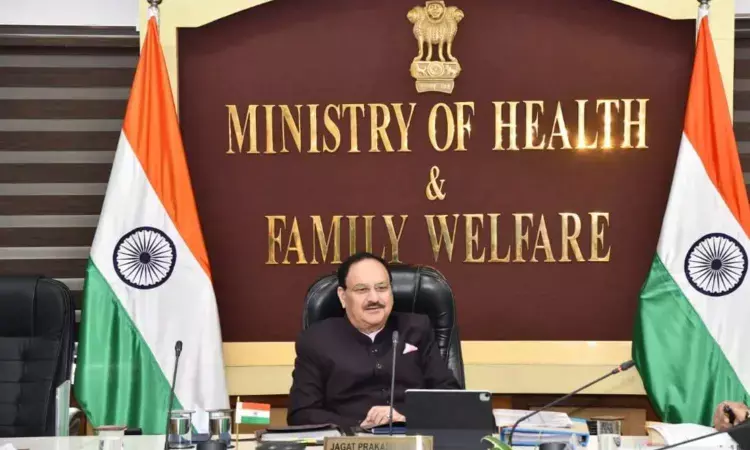- Home
- Medical news & Guidelines
- Anesthesiology
- Cardiology and CTVS
- Critical Care
- Dentistry
- Dermatology
- Diabetes and Endocrinology
- ENT
- Gastroenterology
- Medicine
- Nephrology
- Neurology
- Obstretics-Gynaecology
- Oncology
- Ophthalmology
- Orthopaedics
- Pediatrics-Neonatology
- Psychiatry
- Pulmonology
- Radiology
- Surgery
- Urology
- Laboratory Medicine
- Diet
- Nursing
- Paramedical
- Physiotherapy
- Health news
- Fact Check
- Bone Health Fact Check
- Brain Health Fact Check
- Cancer Related Fact Check
- Child Care Fact Check
- Dental and oral health fact check
- Diabetes and metabolic health fact check
- Diet and Nutrition Fact Check
- Eye and ENT Care Fact Check
- Fitness fact check
- Gut health fact check
- Heart health fact check
- Kidney health fact check
- Medical education fact check
- Men's health fact check
- Respiratory fact check
- Skin and hair care fact check
- Vaccine and Immunization fact check
- Women's health fact check
- AYUSH
- State News
- Andaman and Nicobar Islands
- Andhra Pradesh
- Arunachal Pradesh
- Assam
- Bihar
- Chandigarh
- Chattisgarh
- Dadra and Nagar Haveli
- Daman and Diu
- Delhi
- Goa
- Gujarat
- Haryana
- Himachal Pradesh
- Jammu & Kashmir
- Jharkhand
- Karnataka
- Kerala
- Ladakh
- Lakshadweep
- Madhya Pradesh
- Maharashtra
- Manipur
- Meghalaya
- Mizoram
- Nagaland
- Odisha
- Puducherry
- Punjab
- Rajasthan
- Sikkim
- Tamil Nadu
- Telangana
- Tripura
- Uttar Pradesh
- Uttrakhand
- West Bengal
- Medical Education
- Industry
Medical Education Curriculum needs latest tech advancements, AI, telemedicine, digital healthcare: Health Minister JP Nadda

New Delhi: Advocating for the inclusion of the latest technological advancements, artificial intelligence, telemedicine and digital healthcare in the revised medical education curriculum, Union Health Minister JP Nadda recently emphasised the need for adding soft skills to increase empathy, ethics and communication skills of the medical students.
As per PTI report, in his address at a post-budget webinar series organised by the Health Ministry recently, the Health Minister sought the framing of a curriculum that is more vibrant, meaningful and fit to current challenges and makes optimum use of existing infrastructure and medical faculty. He said that "the biggest investment is the investment in people".
Also Read:NMC reintroduces MBBS CBME curriculum, talks about informed consent
Nadda underlined that the government was working with a "holistic approach" that focuses not only on the curative aspect but also on the preventive, palliative and rehabilitative approach to patient care.
"We are also trying to include AYUSH and other medical systems to ensure the availability and access to healthcare for the people." Addressing the event, Nadda said, "Since cancer treatment is a lengthy process with a long cycle of chemotherapy, the government is focusing on engaging with Day Care Cancer Centres rather than big hospitals to ensure engagement of patients post-chemotherapy sessions."
"The government will establish Day Care Cancer Centres in all district hospitals over the next three years. Two hundred of these will be set up this year itself." Underlining the importance of strengthening the medical health system, Nadda reiterated the budget announcements of introducing new medical seats and highlighted the government's efforts to ensure the availability and accessibility of quality healthcare to people through more than 1.75 lakh Ayushman Aarogya Mandirs.
The minister said that the number of medical colleges has increased from 387 in 2014 to 780 now and underlined that there has been a 130 per cent rise in the number of seats for undergraduate and a 135 per cent growth in seats for postgraduate courses during the same period.
He also supported the suggestions made during the webinar such as faculty pooling among medical institutes, hiring retired teachers as visiting faculties to make unviable institutions viable, incorporating competency-based medical education, early clinical exposure for students, and enhanced communication skills for both students and faculty.
Highlighting the developments made in medical infrastructure for cancer care, Nadda mentioned the establishment of the National Cancer Institute at AIIMS-Jhajjar, the upgradation of Chittaranjan National Cancer Institute in Kolkata and the setting up of oncology departments in all 22 AIIMS.
Kajal Rajput joined Medical Dialogues as an Correspondent for the Latest Health News Section in 2019. She holds a Bachelor's degree in Arts from University of Delhi. She manly covers all the updates in health news, hospitals, doctors news, government policies and Health Ministry. She can be contacted at editorial@medicaldialogues.in Contact no. 011-43720751


